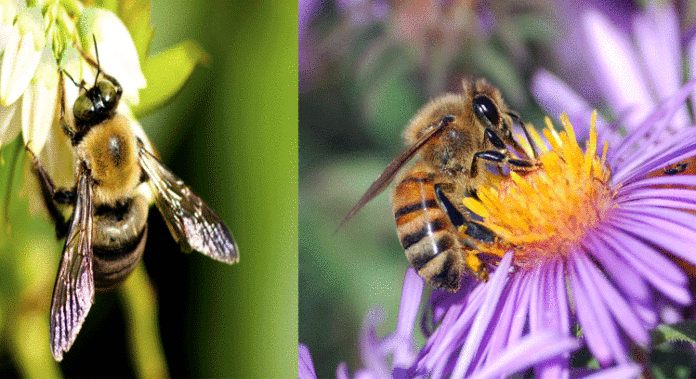
TAKE A WALK around your local garden centre and you will see a mouth-watering range of gorgeous plants on display.
You might note that some are specifically labelled as pollinator or bee-friendly, with a picture of a cartoon bumblebee on the label.
If, like many, you’ve ever succumbed to the temptation to buy these plants, you may be somewhat concerned by the results of the latest research just published.
Sussex University have been busy screening the leaves, pollen and nectar of these plants to see if they contain pesticides. They bought flowering plants from a range of major outlets; Wyevale (the biggest garden centre chain in the UK) and also Aldi, B&Q and Homebase, deliberately purchasing plants that are known to be attractive to bees and butterflies; most of them had a bee-friendly logo, often the RHS one.
On investigation, they found that most of these plants contained a cocktail of pesticides, usually a mixture of fungicides and insecticides. Only two out of 29 plants contained no pesticides. Seventy six percent of them (22/29) contained at least one insecticide, and 38% contained two or more insecticides. One flowering heather plant contained five different insecticides and five different fungicides – a veritable toxic bouquet.
Seventy percent of the plants contained neonicotinoids (insecticides that are notorious for their harmful effects on bees), commonly including the ones banned for use on flowering crops by the EU (for the technically minded: 38% contained imidacloprid, 14% contained thiamethoxam and one contained clothianidin). You get the picture? Plants sold as ‘bee-friendly’ plants are usually stuffed full of pesticides.
Just before the results went public, B&Q (who knew that the study was appearing imminently) announced that they were prohibiting their suppliers from using neonicotinoids on their plants from February 2018. Once the results were out Aldi declared that they stopped using neonicotinoids in October 2016; the plants tested bought from them were in July 2016.








